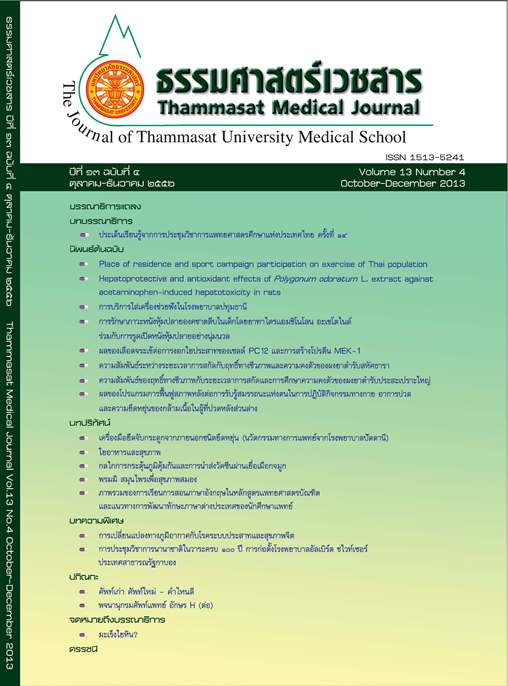Hepatoprotective and antioxidant effects of Polygonum odoratum L. extract against acetaminophen-induced hepatotoxicity in rats
Keywords:
Antioxidant, Oxidative stress, Acetaminophen, Polygonum odoratum L.Abstract
Introduction: Polygonum odoratum L. contains signifi cant amounts of fl avonoids which have been shown to possessstrong antioxidant activity. We investigated the antioxidant and protective effect of Polygonumodoratum L. extract in rats which were induced to have liver injury by acetaminophen (APAP),a commonly used antipyretic/analgesic drug that can cause hepatotoxicity when used overdose.
Methods: Rats were administered with 500 or 1,000 mg/kg body weight (BW)/day of the plant extract for 7 daysprior to exposure of APAP (3 g/kg BW). After 24 hours of APAP administration, blood samples werecollected for determination of aspartate transaminase (AST), alanine transaminase (ALT), malondialdehyde(MDA) levels, and liver samples were examined for histopathology changes.
Results: Levels of AST, ALT and MDA were signifi cantly higher in rats treated with APAP alone as comparedto the control. Pre-treatment of the animal with the extract signifi cantly reduced AST, ALT and MDAlevels and liver injury.
Discussionand Conclusion: The increased levels of liver enzymes and MDA level in APAP treated rats were due to hepatocellularand injuries. Pre-treatment with Polygonum odoratum L. extract could ameliorate oxidative stress and liverinjury induced by APAP. The protective effect might be due to the antioxidant proprieties of thisextract.
Key words: Antioxidant, Oxidative stress, Acetaminophen, Polygonum odoratum L.



